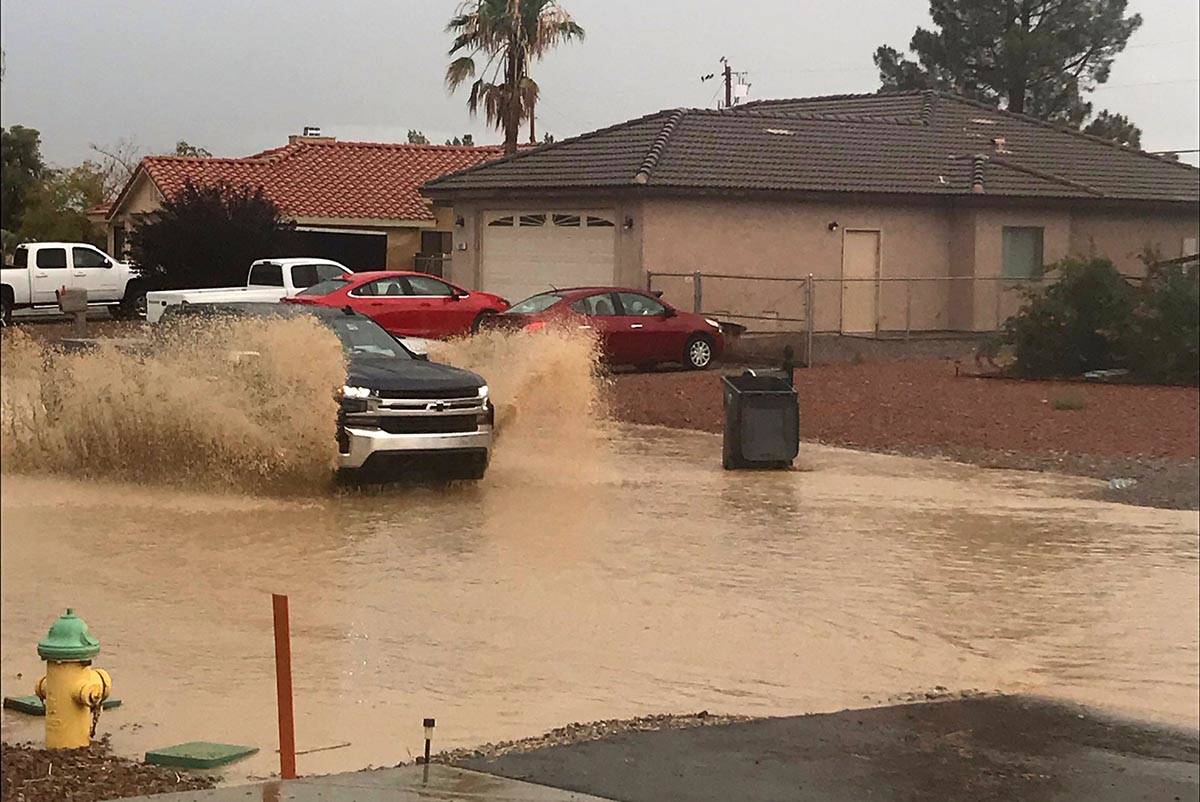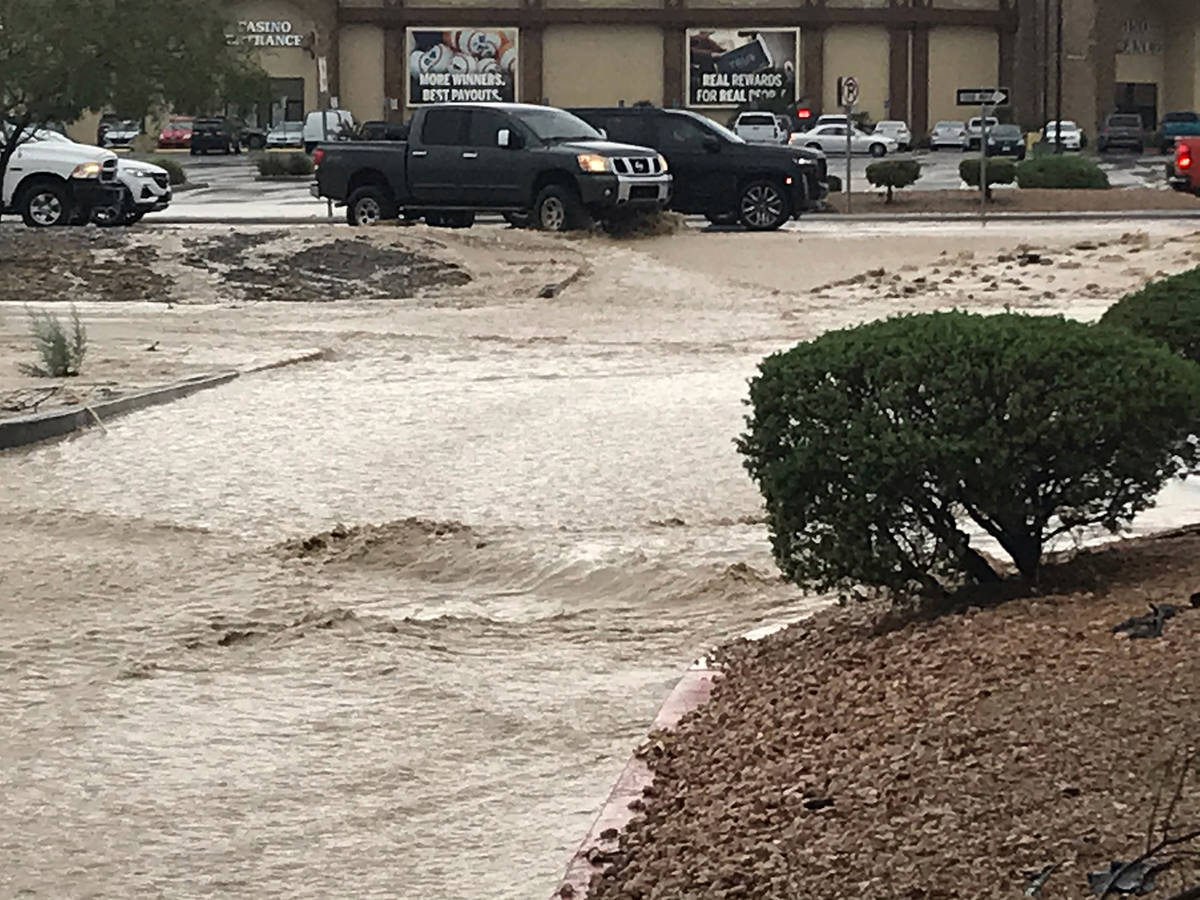STEVE SEBELIUS: Progress, sure, but it’s still not good enough
Progress is good.
But sometimes, it’s just not good enough.
It rained a lot last week in Las Vegas, the kind of driving downpour that reduces visibility to nearly zero.
And rain in Las Vegas means flooding. Puddles, ponds and small lakes crop up everywhere, many in the same places that flooded last year.
I reminded folks via Twitter that there are cities mentioned in the Bible that had better drainage than modern Las Vegas.
That prompted a lot of people on Twitter to remark that it used to be worse.
Indeed, it did. Rains used to turn the Charleston underpass at Interstate 15 into a hidden water tank that claimed more than one unsuspecting motorist. Pop-up ponds were common all over town.
But that doesn’t mean our flood control efforts are good enough, not while motorists scramble to find high ground and our firefighters require swift-water rescue training. (It’s a good thing they do: Two children playing in Henderson were swept away by floodwaters and had to be saved. Both survived their ordeal.)
The Clark County Regional Flood Control District weighed in on Twitter: “We’re proud to have completed 671 miles of storm drains/channels and 102 detention basins,” the agency wrote. “We’re 75% done building out the system on one-quarter of one penny sales tax. Progress may be too slow for you, but we think we’ve come a long way.”
First, progress isn’t just too slow for me. Progress is too slow for everybody. I’m just the guy who said it out loud.
Second, in his book on leadership, former Navy SEAL Richard Marcinko writes people are not paid for their methods, they are paid for their results. That means it doesn’t matter how many miles of storm drains or detention basins you build if the problem still persists.
That is not to say that the fine folks at the flood control district don’t have a point. Things are demonstrably better than when I arrived in town in 1993 and even better than they were previous decades.
That’s progress. The agency is trying to fix the problem. It just hasn’t fixed the problem yet. (And now’s a good time to mention that paltry investments are going to produce paltry results. You can complain about flooding, but if you also complain about taxes, realize there’s a connection.)
And the problem with progress isn’t just flood control, it’s everything.
We used to burn leaded gasoline in big, fuel-inefficient V-8 engines powering hunks of Detroit steel. Since then, we’ve removed lead from gas, vastly improved the fuel efficiency and made cars less polluting.
But it’s not good enough. The Biden administration announced it would return to Obama-era fuel efficiency standards.
We used to allow health insurance companies to deny coverage based on pre-existing conditions and put caps on lifetime benefits. Thanks to the Affordable Care Act, that’s no longer the case, and a bipartisan consensus of lawmakers agree it’s a good thing.
But nobody would argue we’ve solved the health insurance problem. We’ve made a lot of progress, but it’s still not good enough.
There was a time in America when Black people were treated as property. We fought a war over that issue and took another century to pass civil and voting rights laws. We’ve made huge strides in recognizing the effects of systemic racism in our country, and anyone who would deny that is wrong.
Progress? Absolutely. But it’s still not good enough.
When the founders wrote the Constitution, they wrote to form a “more perfect union.” They didn’t say a “perfect” union, since they knew no such thing exists and that we’d have to continually strive to get it right.
We’ve made a lot of progress in the 245 years since, but it’s still unfinished. It’s still not good enough.
There’s absolutely nothing wrong with touting the progress we’ve made, whether it’s in improving race relations or keeping the streets from flooding. It’s important we recognize that, so we know how far we’ve come.
But we should never fall back on that progress to defeat the idea that we need to continue to do better, to solve the problems that vex us and then address ourselves to the new ones that crop up along the way. When somebody points out a problem, it’s fine to acknowledge that things have gotten better, but not to answer the fact that things need to improve even more.
Progress is real. But sometimes it’s just not good enough.
Contact Steve Sebelius at SSebelius@reviewjournal.
























